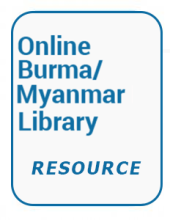Land Library
Welcome to the Land Portal Library. Explore our vast collection of open-access resources (over 74,000) including reports, journal articles, research papers, peer-reviewed publications, legal documents, videos and much more.
/ library resources
Showing items 1 through 9 of 377.Law Number 5 of 1960 concerning Basic Regulations on Agrarian Principles is widely praised as the great work of the Indonesian nation which is revolutionary, responsive and combines the undeniable combination of individualism and communalism.
This paper is about the research methods, stages, challenges and results of the LASCAUX programme, a European research programme that took place over five years, between February 2009 and January 2014.
In rural areas agricultural plots are seldom delineated and can be encroached upon by neighbours. Under these circumstances labour supply can be inefficiently distorted to safeguard the plots from encroachment.
Early in the morning of 25 August 2017, members of a Rohingya armed group, the Arakan Rohingya
Salvation Army (ARSA), attacked approximately 30 security force outposts in northern Rakhine State.1 In its
This paper investigates the impact of a rural land certification program on schooling in two zones of the Amhara region of Ethiopia.
...Credible information indicates that the Myanmar security forces purposely destroyed the
property of the Rohingyas, scorched their dwellings and entire villages in northern Rakhine
State, not only to drive the population out in droves but also to prevent the fleeing Rohingya
The formalisation of local or customary land rights is often seen as a means of tackling insecurity of land tenure and encouraging investment.
Executive Summary:
"Myanmar has been engaged in a process of political change since 2011. A central goal of these reforms
has been the attempt to resolve political conflicts between ethnic armed organisations (EAOs) and the
Myanmar Government. Talks began under the ‘civilian
This article explores some of the realities of supporting income generation for displaced people in conflict settings, drawing on experiences in Kachin, northern Myanmar, suggesting development and humanitarian actors need to better acknowledge limitations and rethink our approaches.



